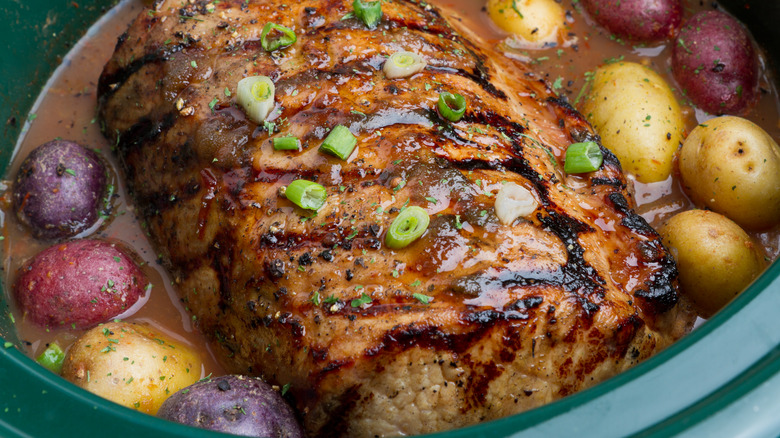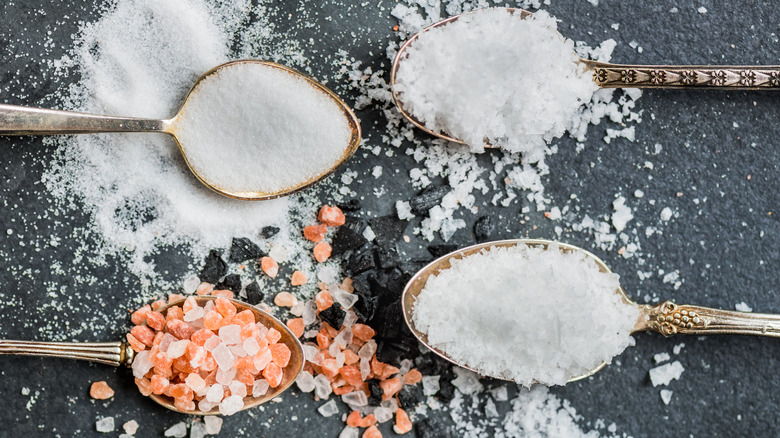The Ideal Type Of Salt To Get A Better Crust On Pot Roast
Every chef, from amateur to professional, knows that salt is more than just simple seasoning. It actually has the ability to completely transform the food. For instance, with its ability to draw out the juices from meat or create a brine for browning and preservation, there's little doubt that salt is a kitchen essential. But did you know there are many different kinds of salts, and that if you're preparing a pot roast, your choice of salt can actually make or break the outcome?
It's true: The size of the salt crystals and their mineral content can significantly impact the flavor and texture of your pot roast. Before you cook the roast, use a type of flaky sea salt to rub over the exterior of the meat. Any brand will work, from Fleur de Sel and Maldon to Jacobsen. Flaky sea salt has a unique pyramid-like shape that gives it a rough and, as the name suggests, flaky texture. This salt not only enhances the crust's seasoning but also ensures it forms properly, resulting in a delightful, crunchy exterior. After the roast is fully cooked and sliced, add a touch of coarse finishing salt like Sel Gris. This type of salt is rich in minerals, giving it a distinctive earthy flavor that makes it a perfect booster for your roast.
Should table salt and Kosher salt be used for cooking pot roast?
If you know your salt well, you may have noticed that both kinds of salt we recommended earlier are sea salt, which is very different from table and Kosher salt that's commonly used in the kitchen. If you don't have these kinds of sea salt at hand, it's perfectly okay to use table or Kosher salt as substitutes. But there are many reasons why sea salt is still preferred.
Sea salt, derived from evaporated seawater, retains vital minerals that give it a unique taste, which is why it's so favored for seasoning purposes. In contrast, table salt, after going through refinement, has been stripped almost entirely of its mineral content. Additionally, it may include additives like iodine and anti-caking agents which can further affect the roast's taste. Another important aspect is the texture of sea salt. The larger, coarser crystals help with creating a crunchy crust when sprinkled on the roast's surface. You won't get the same effect with the extremely fine grains of table salt. As for Kosher salt, while it has a coarser texture than sea salt and lacks additives like table salt, it still doesn't have the minerals and unique flavor that sea salt offers. This means that Kosher salt won't enhance the flavor of your roast as much as a sprinkle of sea salt would.

